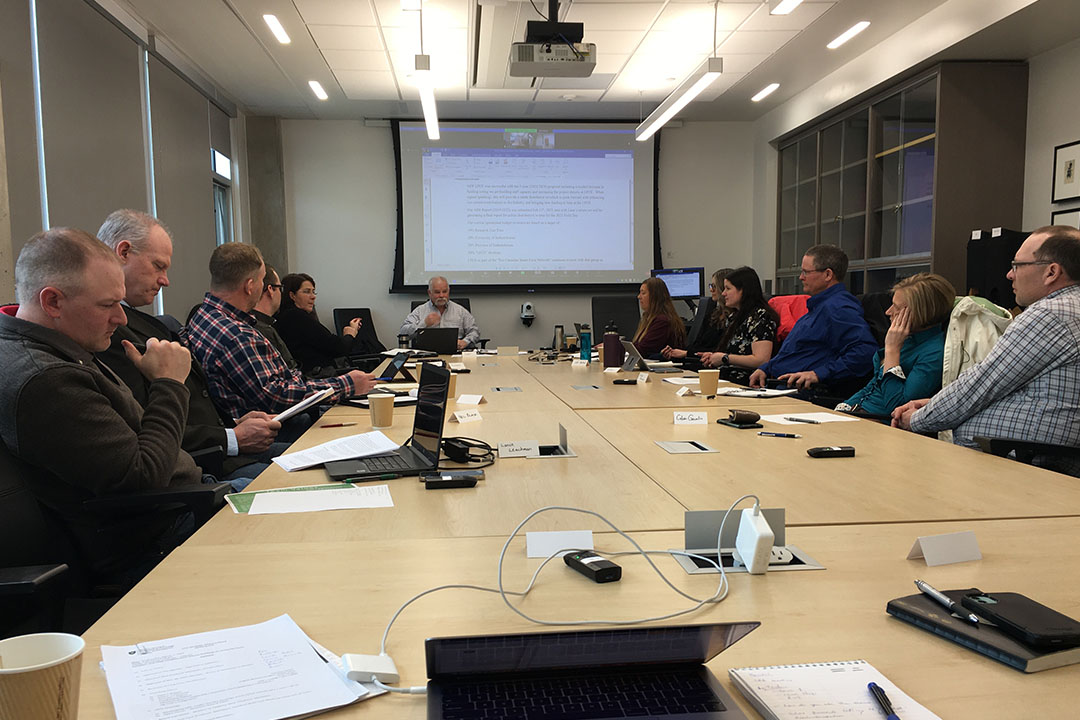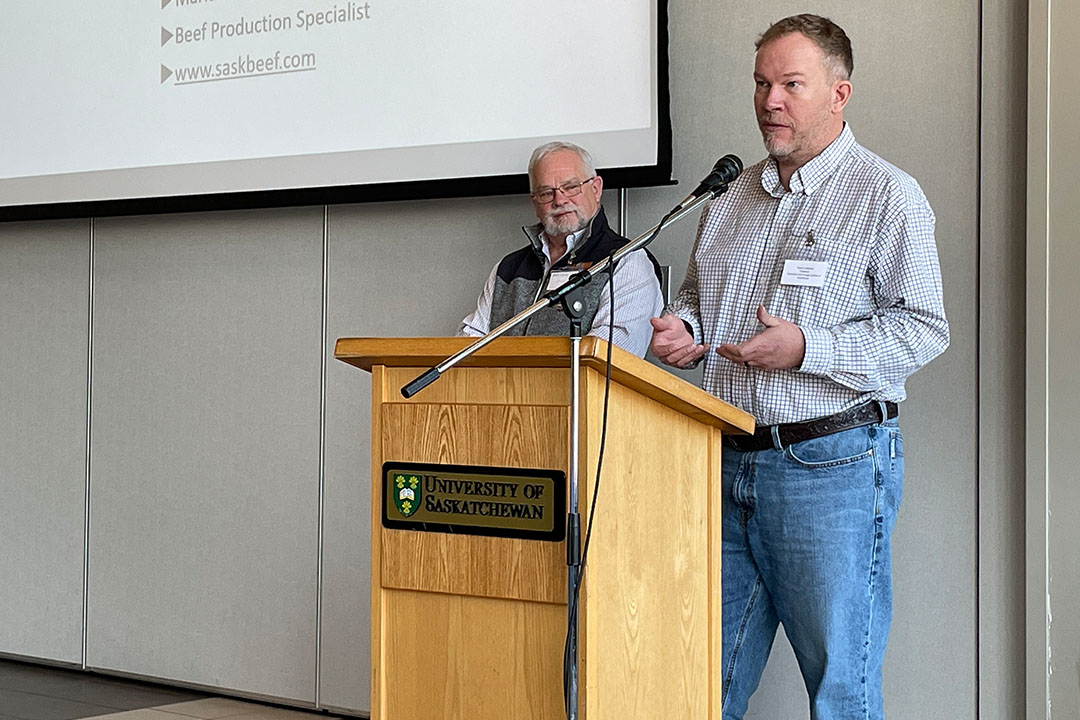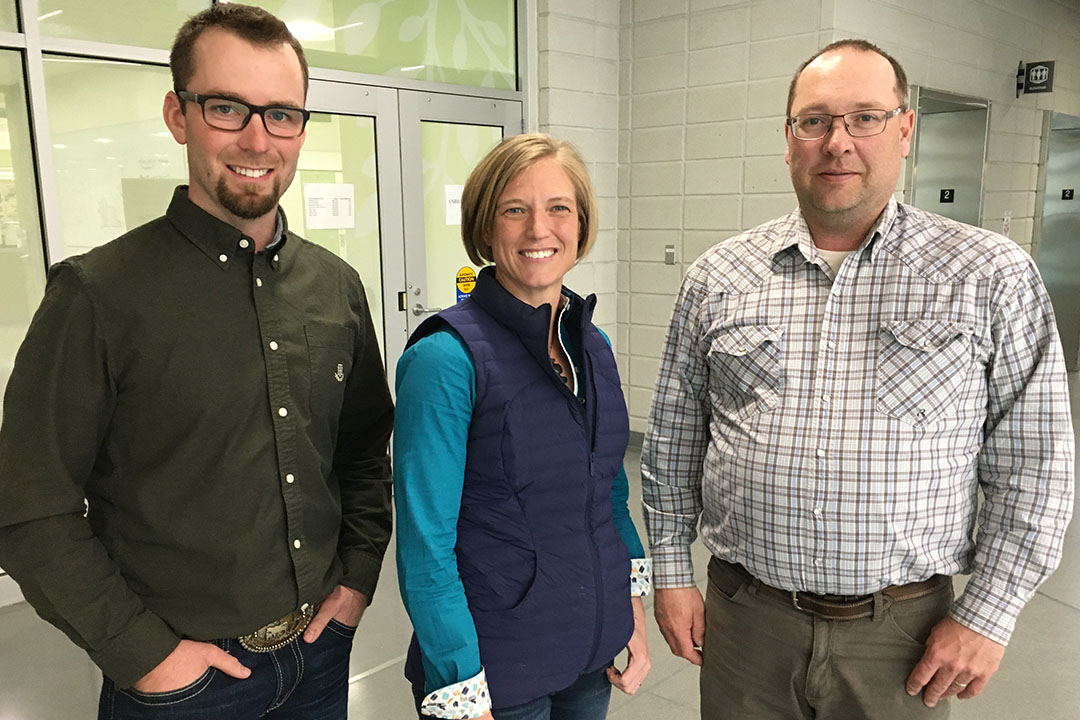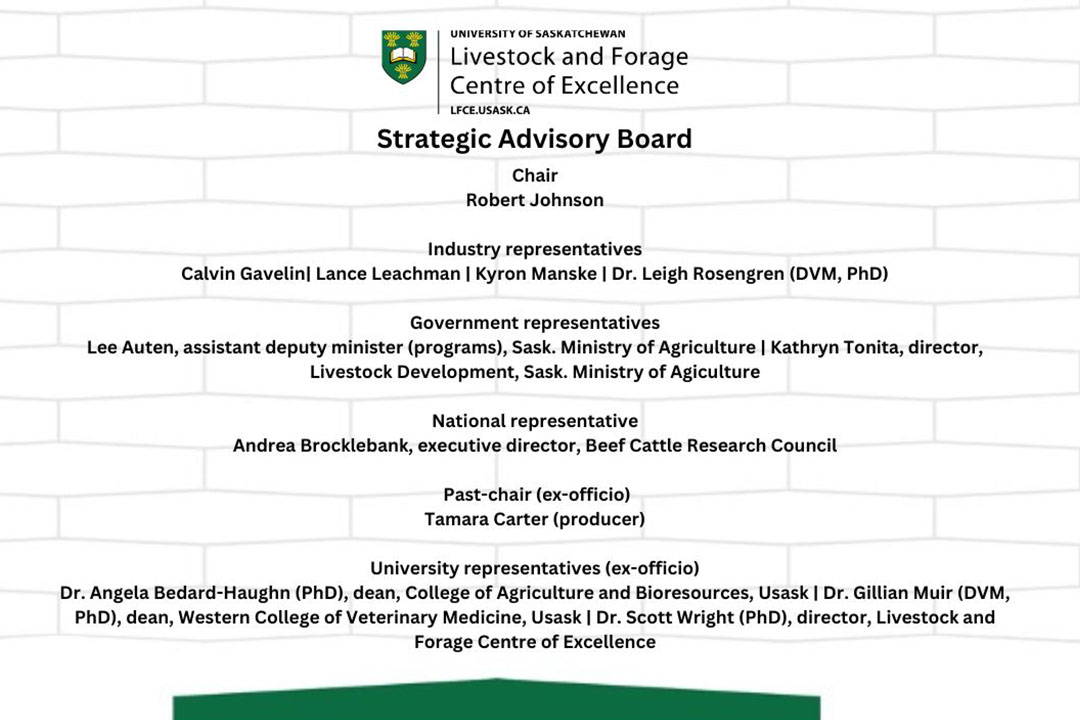
New members welcomed to the Strategic Advisory Board
The new chair of the Strategic Advisory Board of the University of Saskatchewan’s Livestock and Forage Centre of Excellence is eager to ensure the voice of producers continues to be heard.
By Lana Haight“It’s really important as an agricultural producer to be part of the conversation whether it’s research or policy. If you don’t get involved, you are on the outside looking in. You are not at the table; you are ‘on the menu,’” said Robert Johnson, who owns and operates a bison ranch with his wife Rebecca near Fairlight, in southeastern Saskatchewan.
The Johnsons own about 400 bison cow-calf pairs and feed to the finishing stage about 800 animals annually that are shipped to the United States because processing capacity in Canada is limited. Some of the bison meat is then imported back to Canada and sold as Noble Premium Bison.
As the newly elected chair of the board, Johnson will be involved in crafting the strategic vision of the board.
“It’s really encouraging to see the people who were on the board for the first couple of terms and they developed a real identity for the board. Now, we have new people coming in with new ideas. They are experienced whether it’s in governance or hands-on. We’ve got a really good group,” said Johnson, who started his second three-year term on March 1, 2023. The chair position is a one-year commitment.

Johnson added he appreciates the support of the deans of the Western College of Veterinary Medicine and the College of Agriculture and Bioresources as well as LFCE director Dr. Scott Wright (PhD), who are ex-officio members of the advisory board. Dr. Gillian Muir (DVM, PhD), Dr. Angela Bedard-Haugh (PhD) and Wright are very engaged and connect well with the producer, industry and government representatives.
At their March 1 meeting, the advisory board members welcomed three new people who will serve a three-year term.
Calvin Gavelin and his wife operate a mixed farm/ranch with Red Angus cattle near McCord, in southern Saskatchewan. In addition to running the cow-calf operation, they background and finish their cattle to supply a farmgate, direct-market beef business. Four years ago, they completed a Holistic Management Course where they learned how to implement regenerative agriculture principles. He has served on many industry boards and was the reeve of the Rural Municipality of Mankota. Gavelin is currently a director-at-large with Saskatchewan Stock Growers Association.
Kyron Manske and his wife own and operate East Poplar Simmentals, a purebred and commercial cow-calf operation near Coronach, in southern Saskatchewan. He earned his Bachelor of Science in Agribusiness from USask and is a board member of the Saskatchewan Simmental Association, Saskatchewan Stockgrowers Association and South Saskatchewan Ready, as well as a councillor with the Rural Municipality of Hart Butte.

Dr. Leigh Rosengren (DVM, PhD) and her husband farm near Midale, in southern Saskatchewan. She earned a Doctor of Veterinary Medicine from the Western College of Veterinary Medicine and a PhD in Veterinary Epidemiology from USask in the early 2000s. More recently, Rosengren completed a Masters of Agribusiness from Kansas State University, which was instrumental in improving the management systems of their grain farm and influential on the decision to disperse the cow-calf herd to consider other opportunities in the sector. Rosengren continues to work in the livestock industry as chief veterinary officer with the Canadian Cattle Association and as an epidemiology consultant.
Stepping down from the board after serving the maximum of two terms are Duane Thompson (chair from March 2018 to November 2021), Tamara Carter (chair from November 2021 to March 2023) and Neil Block. All three have served since the board was established in March 2018. Carter will continue as an ex-officio member for the next year, providing support to Johnson.
Manske says he’s always been interested in research and hopes to contribute to growing the beef industry as a member of the LFCE’s advisory board. He has a particular interest in developing the use of technology in the cattle industry.
“I’m a curious kind of person. I’m not satisfied doing things the way they have always been done. I’m always looking to the future and new and better ways to do things,” said Manske.
The Livestock and Forage Centre of Excellence is a world-class research facility with a 1,500-head cattle feedlot and a 400-head cowherd, but it also has a two bison herds: Woods bison and Plains bison.
Johnson says producers have much to learn from the bison.
“The Northern Great Plains exist today because of the bison. They formed the eco-system through the grazing and their hoof action as the keystone species. We keep hearing that we need to graze (cattle) the way the bison do. Why re-invent the wheel? Let them work for us instead of us working for them.”
After meeting virtually for the past couple of years because of COVID-19 pandemic restrictions, Johnson is looking forward to effective and efficient meetings where the board members can work through issues as a group.


